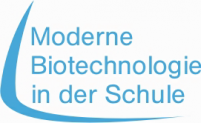Enzyme lactase is produced in E. coli induced by lactose in the media of the production process. Lactase is isolated out of the bacteria by lysozyme. Purified by chromatography. Purity is tested by PAGE. Activity of the enzyme is tested by photometry in O-NPG assay.
Lactase
Lactase is an enzyme that catalyzes the hydrolysis of lactose, a disaccharide sugar found in milk, into its simpler components glucose and galactose, which can then be absorbed by the body. It is crucial for the digestion of milk and dairy products. In Escherichia coli (E. coli), lactase activity is primarily associated with the enzyme β-galactosidase, encoded by the lacZ gene within the lac operon. The lac operon is a well-studied gene regulatory system that controls the metabolism of lactose in E. coli. When lactose is present and glucose is absent, the lac operon is induced, leading to the production of β-galactosidase, which breaks down lactose into glucose and galactose for use as energy sources. This understanding highlights the molecular basis of lactose metabolism in bacteria and its practical applications in food and health industries.
